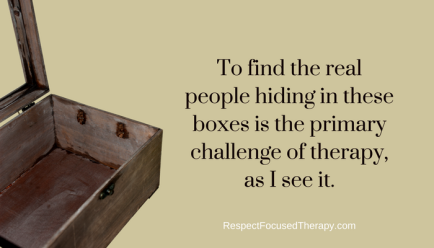Integrity is that part of ourselves which holds us accountable to our core beliefs and is at the heart of respecting who we really can be. This accountability includes a standard in human behavioral values, but should not be so rigid as to make that standard humanly unachievable. No one is above making mistakes or bad choices. Our sense of well-established integrity, therefore, necessarily includes compassion, forgiveness and grace.

The pathway to achieving such a balance of moral integrity, and the ability to genuinely forgive one’s perceived shortcomings, is frequently interrupted or broken by trauma and the resulting life experiences, such as PTSD, addiction, depression or other mental impairments. Integrity may seem as if it is unattainable or out of one’s reach even if it is already there. Shame often becomes a dominant source of blockage around the trauma(s), and the resulting experiences or behaviors by the traumatized or impaired, because it frequently becomes the way we interpret those negative events in our lives. We tend to internalize those events and cast blame on ourselves.
Therefore, self-forgiveness becomes key to repairing the psychological damage done by shame. This process of self-forgiveness, then, is not about making excuses for one’s behavior, but truly acknowledging wrongdoings with grace, letting go self-imposed penalties, self regret, hatred or other forms of disregard. It is also about being able and willing to make amends and correcting hurtful behavior where and when possible in context of relating to others.

Respect-Focused Therapy (RFT) is a foundation on which all modalities and techniques used in therapy can be strongly grounded, in order to produce sound, effective outcomes. This approach offers clients the opportunity to gain experiential understanding of being respected, possibly for the first time, from the therapeutic relationship and then be able to heal old wounds by creating more respect for self and others in the therapeutic process.


